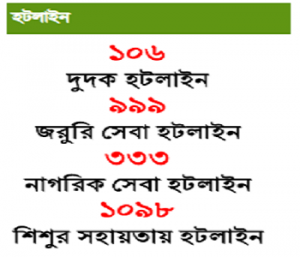Organization
Under the Health Economics Unit there are two different units:a. Health Economics Unit and
b. Gender, NGO and Stakeholder Participation.
Health Economics Unit
The Health Economics Unit is mainly delegated with producing research, conducting capacity building and developing policy advice pertaining to health economics and the health financing of the country. The unit also produces the national health accounts and public expenditure review on a routine basis.
Mandate & Responsibility:
The activities of HEU fall into four main areas. These are:
- Policy Advice: In policy advice the health economics unit is playing a central coordinating role and working as focal point of some key activities in the development of the HNP sector. The HEU responds to Ad-hoc policy queries from the MOHFW as well as other related Ministry /Government Department (e.g. the Cabinet Division).
- Strengthening Capacity: For capacity building in ‘Health Economics’ HEU organizes foreign as well as local training/workshops. The broad areas of the training include: Basic Health Economics Principles and its uses in Bangladesh, Health Care Financing, Costing and Economic Evaluation of Health Care, Inequity in Health Care and Poverty, Health Economics Research Methodology.
- Research and Development: The HEU concentrates on providing and commissioning policy relevant research related to Health Economics. The work encompasses both topics that are traditionally ‘economic’, such as the annual health Public Expenditure Review (PER), National Health Accounts (NHA), and also topics that have a broader social-science dimension where the insights of economics can be used together with other disciplines. Research studies were conducted in-house and commissioned to external research organizations. A good number of research/studies have been done in the areas of costing, resource/expenditure tracking, benefit incidence analysis, etc.
- Dissemination: Dissemination is one of the main activities of HEU. Through seminars/workshops this activity is done. Specific research findings are disseminated through workshops/seminars. Specific research findings are disseminated through workshops/seminars. Moreover, to share the experience from the health economists around the world, sometimes HEU organizes Health Economics Conference as well. Experts from home and abroad in health economics present papers in the conference. GOB policy makers/planners, different stakeholders, NGOs and private sector representatives attend the conference.
Gender, NGO, Stakeholder Participation Unit
NSPU has been formed with the aim to gender mainstreaming in the HPN sector and establishing the effective coordination among NGOs working in the gender issues.
Mandate and Responsibility:
- Research and Policies: The GNSP Unit conducts researches and helps the Ministry of health and Family Welfare design gender responsive policies and activities.
- Workshops: The unit organizes various gender sensitization workshops, training programs and seminars for enhancing the professional capacity of the health care providers and stakeholders in implementing the gender responsive policies and programs.
- Strategy development:: GNSP unit facilitates the Gender Advisory Committee to guide and identify areas of NGO participation and develop a strategy for NGO participation in the HPN sector. Furthermore, in order to bring about efficiency, the GNSP unit has been mandated with developing a strategy for Public Private Partnerships in the HPN sector.
Networking and Partnerships:
HEU in carrying out its responsibilities works in partnership with a network of national and overseas organizations, institutions and faculties. The GNSPU has its own networks with local and international NGOS, working in the area of Gender.





